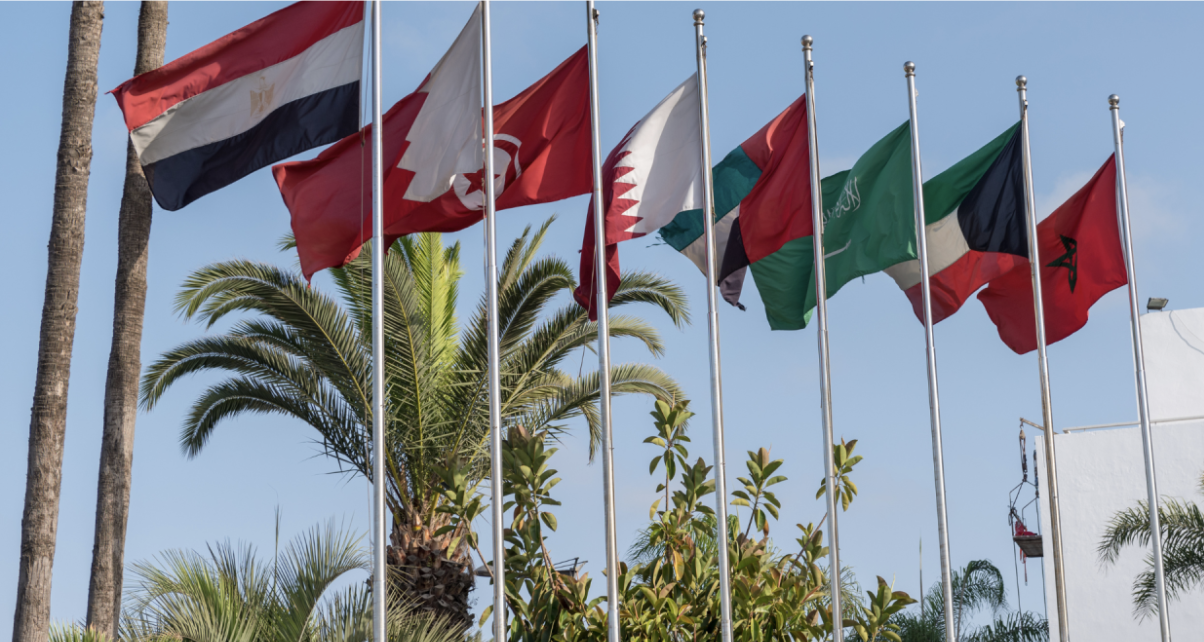MENA Region Achieves Record $6.8 Billion in Startup Funding: A New Era for Innovation and Growth

The Middle East and North Africa (MENA) region has experienced an unprecedented year in venture capital investments, achieving a record $6.8 billion in startup funding across various sectors. Driven by high-value funding rounds and an increasing interest from global investors, this surge reflects the region’s rapid growth as a tech and innovation hub. Startups within fintech, health tech, and e-commerce have been pivotal to this growth, attracting significant capital due to their potential to address pressing societal needs and transform regional economies.
The Drivers of MENA’s Startup Boom
Several factors have contributed to the MENA region’s historic funding levels in 2024. These include a rising number of tech-savvy consumers, a youthful population, and a supportive policy environment. Governments across the region have launched initiatives to foster a culture of entrepreneurship and technology adoption, encouraging innovation in sectors critical to economic diversification.
Regional hubs like the United Arab Emirates (UAE), Saudi Arabia, and Egypt have been particularly active in supporting startups through regulatory reforms, investment incentives, and public-private partnerships. These changes have made the MENA region an attractive destination for venture capital, drawing interest from both local investors and global players looking to capitalise on the region’s burgeoning startup ecosystem.
Key Sectors Leading the Investment Surge
Three sectors have emerged as the primary recipients of this record-breaking funding wave: fintech, health tech, and e-commerce. Each sector has demonstrated resilience and adaptability in responding to the unique demands of the region, propelling its growth and attracting substantial capital investment.
- Fintech: As digital payment solutions and banking alternatives become increasingly popular, fintech has solidified its position as a leader in MENA’s innovation ecosystem. With large populations in MENA still unbanked or underbanked, fintech companies are addressing a critical gap by providing accessible financial solutions. Mobile payment apps, peer-to-peer lending, and digital banking platforms have drawn millions in venture capital, with Saudi Arabia and the UAE particularly seeing high levels of investment in this sector.
- Health Tech: The health tech sector has grown rapidly as startups work to enhance healthcare accessibility and efficiency. This sector’s expansion has been fuelled by the demand for solutions that offer remote consultations, digital health records, and improved patient management systems, especially in light of the post-pandemic shift toward digital healthcare. The increasing interest from investors reflects the high growth potential of health tech in a region where healthcare infrastructure is evolving and expanding.
- E-commerce: The e-commerce market in MENA has continued to boom, driven by rising digital literacy and a growing preference for online shopping. The shift towards digital retail has accelerated in the last few years, with companies investing heavily in improving logistics and payment systems. Venture capitalists have shown keen interest in funding e-commerce platforms that offer a range of products, from essentials to luxury goods, catering to diverse consumer demands across the region.
High-Value Funding Rounds and Major Players
Prominent venture capital firms, including some based in Silicon Valley, have turned their attention to MENA’s thriving startup scene. Notable high-value funding rounds in 2024 include multimillion-dollar investments in fintech firms seeking to expand financial inclusion, health tech startups pioneering digital healthcare solutions, and e-commerce platforms that are redefining online shopping experiences.
In the UAE, Dubai and Abu Dhabi have become prominent tech hubs, hosting events such as GITEX Global, which showcases the region’s latest innovations and connects startups with investors. Saudi Arabia’s Vision 2030 initiative, aimed at reducing the country’s dependency on oil, has also prioritised technology investment, leading to an influx of funding in sectors like e-commerce and fintech. Similarly, Egypt has made strides with supportive policies and infrastructure, fostering a growing community of entrepreneurs and tech innovators.
The Impact on MENA’s Economy
The record $6.8 billion investment in startups signifies more than just a boom in funding; it reflects a shift in how economies within the region are diversifying. By nurturing sectors like fintech, health tech, and e-commerce, MENA countries are taking active steps towards building knowledge-based economies less reliant on traditional industries such as oil and gas. This economic diversification is creating jobs, fostering local innovation, and building a robust foundation for sustained growth.
Moreover, the influx of venture capital has led to increased international partnerships, as Western firms seek to establish a presence in MENA’s expanding markets. This capital flow, coupled with knowledge transfer from international tech firms and investors, is creating a dynamic ecosystem that could position the MENA region as a global tech powerhouse in the coming decade.
Challenges and Future Outlook
While the growth trajectory is promising, the MENA startup ecosystem still faces challenges that could impact its future development. Regulatory complexity remains a hurdle, as companies navigating multiple jurisdictions within the region often encounter differing legal frameworks. Additionally, the need for skilled tech talent is increasing, and while MENA has a young and capable workforce, there remains a skills gap in advanced areas like artificial intelligence, machine learning, and data science.
Despite these challenges, the future of the MENA startup scene looks bright. With supportive government policies, increased access to capital, and a young, tech-savvy population, the region is set to continue its upward trend. Venture capital firms have expressed a strong interest in further investments, and with initiatives aimed at fostering talent and improving regulatory environments, MENA is well-positioned to sustain its growth momentum.
Conclusion
The record $6.8 billion in startup funding across the MENA region in 2024 signals a transformative period for technology and innovation. With sectors like fintech, health tech, and e-commerce at the forefront, MENA countries are laying the groundwork for diversified, knowledge-based economies that will drive long-term growth. As the region continues to attract global venture capital, it is evident that MENA is no longer just an emerging market; it is rapidly establishing itself as a pivotal player in the global tech landscape.


